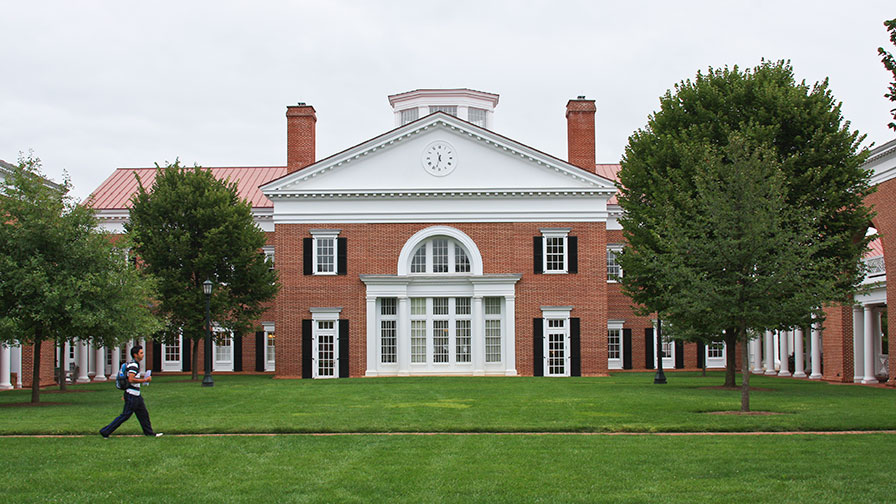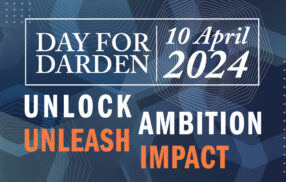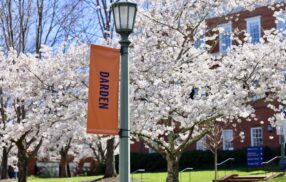
K2 Dental Arts: A Focus on Customer Service
K2 Dental Arts, a company that helps dentists adopt digital scanning technology for the modeling of crowns and bridges, is not a tech company, says its cofounder and finance director Ares Manos (MBA ’14). “We’re a customer service company,” he explains. “Other businesses might spend a day helping a dentist learn how to use the scanner or even just drop it off and leave. But the learning curve is steep, so we devote a lot of time to helping everyone in a dental practice become familiar with this new equipment. It’s our main differentiator—it’s what’s essential to our business.”
Along with this clear sense of what business it’s in and what its clients need, K2 Dental Arts, one of the 2014–2015 class of young ventures in the UVa i.Lab Incubator, is developing some clear plans for the future. The company, which now serves nine clients in Charlottesville and Lynchburg, is looking to double that number by mid-2015 and is considering other ways to increase the value of its services to customers.
Founded in fall 2013 by then–second year Darden students Philip Kim (MBA ’14), Dwight Emerine (MBA ’14), and Manos, K2 Dental Arts grew out of Kim’s insight that dentistry was changing and someone would come out on top. Kim, who serves as CEO, grew up around the industry—his father ran a dental lab in California that manufactured crowns—and he served as the chief of staff for the U.S. Army’s largest dental facility. In that role, Kim noticed a trend toward digitization: Instead of creating molds for crowns and bridges by having patients bite into a gooey putty, some dentists were beginning to use scanners that take hundreds of images that are used to build a 3-D model, which is then emailed to a 3-D printer that fabricates the bridge or crown.
The digital method is cheaper, better, and faster. But it requires an upfront investment of about $50,000 in scanning equipment and many hours in learning how to use it. Unless a practice has a lot of patients, owning the equipment is not economical. This is where K2 Dental Arts comes in.
Kim, Emerine, and Manos, who had spent the summer of 2013 in the i.Lab Incubator, took an important step in their entrepreneurial journey by pooling their resources to purchase a digital scanner. They chose the scanner at the high end of the market, with the best functionality. “It had to work—it had to be better than what dentists were currently doing in every way,” Manos says.
Through talking with dentists in the Charlottesville area, in early March 2014 they found a local dentist who agreed to be their test case. By the end of the month, this dentist was successfully using the scanner, and within the next three months, K2 Dental Arts brought on eight new clients—all through word of mouth.
K2 offers dental practices an affordable and convenient way to adopt cutting-edge technology. The company owns the scanners and subcontracts the manufacturing of the crowns and bridges from dental labs, which offer K2 a volume discount. Dentists don’t save money in this arrangement (aside from not needing to buy scanners or impression materials), but they end up with crowns and bridges that fit their patients more accurately and are produced more quickly.
Initially, the company planned to offer a mobile service, traveling to one practice per day. But this approach would have required dentists to schedule all their crown and bridge work on just one day per week—a change that most dentists were not willing to consider. So instead, K2 invests in a scanner for each practice it serves. The equipment lives in the dental office, and K2 employees travel from site to site, helping dentists become comfortable using the technology.
To become proficient at teaching others how to use the equipment, everyone at K2 Dental Arts had to learn how to use it themselves. While juggling their MBA coursework, the cofounders, including Sarah Kern and Autumn Marshall, who do most of the on-site training, scanned one another’s mouths. “We made errors on purpose at every step in the process so that we could figure out how to deal with all sorts of scenarios that might come up when we’re actually working with clients,” Manos recalls.
Developing strategies for growth and fundraising have been the central focus of the company’s time in the i.Lab Incubator—growth requires the purchase of more scanning equipment. The company is also exploring opportunities for vertical integration, perhaps developing manufacturing capabilities in order to give clients the option of even faster delivery.
“The dentists we talk to are very open to the new technology—they see that this is the future,” Manos says. He estimates that about 10% to 15% of dental practices are currently using digital scanning equipment, which leaves a lot of the market for K2 Dental Arts to capture.
The University of Virginia Darden School of Business prepares responsible global leaders through unparalleled transformational learning experiences. Darden’s graduate degree programs (MBA, MSBA and Ph.D.) and Executive Education & Lifelong Learning programs offered by the Darden School Foundation set the stage for a lifetime of career advancement and impact. Darden’s top-ranked faculty, renowned for teaching excellence, inspires and shapes modern business leadership worldwide through research, thought leadership and business publishing. Darden has Grounds in Charlottesville, Virginia, and the Washington, D.C., area and a global community that includes 18,000 alumni in 90 countries. Darden was established in 1955 at the University of Virginia, a top public university founded by Thomas Jefferson in 1819 in Charlottesville, Virginia.
Press Contact
Molly Mitchell
Associate Director of Content Marketing and Social Media
Darden School of Business
University of Virginia
MitchellM@darden.virginia.edu





